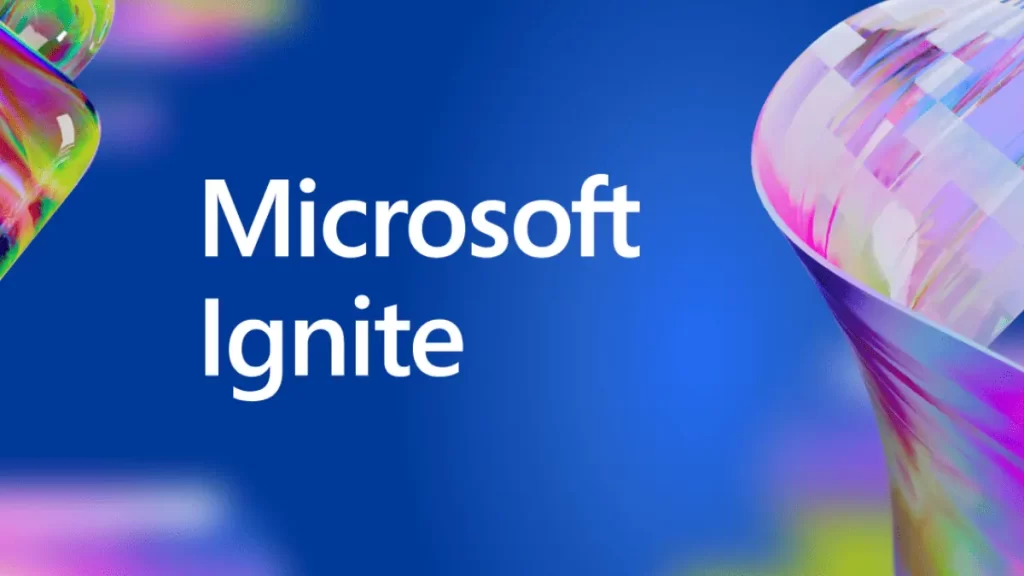At Microsoft Ignite 2024, the company unveiled a slew of exciting innovations and updates, many of which promise to revolutionize how businesses and IT professionals work. Microsoft’s annual conference is the place to hear about its latest advancements in Windows, Microsoft 365, Azure, and artificial intelligence (AI), all aimed at empowering enterprises with cutting-edge technology. From major updates to AI capabilities to new security features and hardware solutions, here’s a detailed breakdown of what was announced at this year’s Ignite event.
1. Microsoft 365 Companions: Bringing AI-Driven Insights to the Windows Taskbar
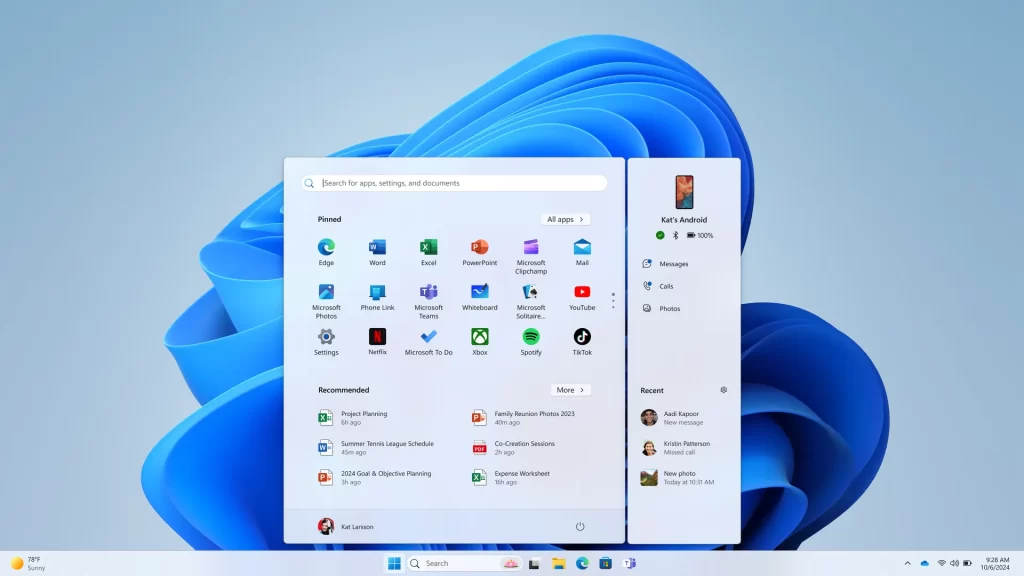
One of the standout features unveiled at Ignite 2024 is the new Microsoft 365 Companions. This feature integrates Microsoft 365 directly into the Windows 11 taskbar, providing users with instant access to key information such as contacts, files, and calendar appointments. Aimed at enhancing productivity, these new “companions” surface relevant data in just one click, making it easier for users to access critical information without interrupting their workflow.
The feature works similarly to the Phone Link app already available on Windows 11, which allows users to interact with their smartphones directly from the taskbar. Microsoft’s 365 Companions, however, will be more focused on enterprise tools, streamlining access to your professional contacts and upcoming meetings. Though details about third-party app integration remain unclear, the potential for customization could expand the functionality of the taskbar in ways that enhance collaboration and data management.
2. AI-Powered Azure AI Foundry: Bridging the Gap Between AI Technologies and Business Applications
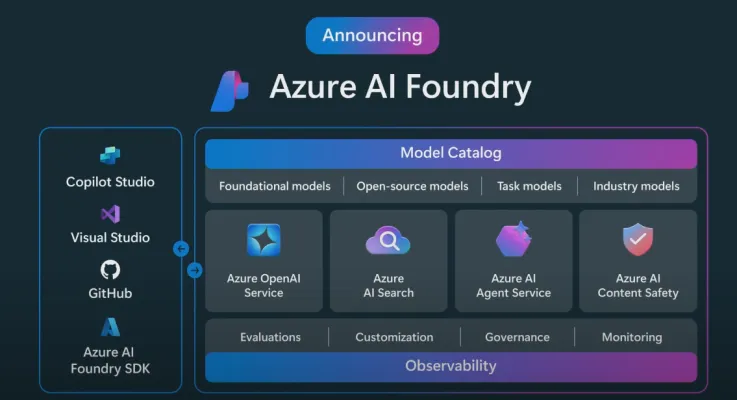
Azure AI Foundry was another major announcement, positioning Microsoft’s cloud platform as a powerful tool for organizations adopting AI. The Azure AI Foundry is designed to help businesses bridge the gap between emerging AI technologies and practical use cases. It provides a unified platform for organizations to manage their AI tools, ensuring they can harness the full potential of AI without the complexities typically associated with integrating advanced AI solutions into existing business infrastructures.
With a focus on scalability and efficiency, Azure AI Foundry aims to make AI adoption easier for businesses of all sizes. The platform empowers developers to design, test, and deploy AI-driven applications across industries—from healthcare to finance—while providing the necessary resources to drive transformation in cloud-based operations.
3. Windows Mixed Reality and Meta Quest 3: Seamless Integration for VR Workstations

In another exciting development, Windows in Mixed Reality is expanding its presence in the VR space, with Microsoft announcing that full Windows 11 support will be coming to Meta Quest 3 and Quest 3S headsets in December 2024. This will enable users to set up virtual workstations with multiple monitors in a fully immersive VR environment. The goal is to create a more productive and flexible workspace, allowing workers to interact with their Windows environment and multitask without being confined to a physical desk.
This feature is part of a broader strategy to integrate Windows with immersive technologies like VR and AR, improving accessibility and efficiency for businesses operating in remote or hybrid environments. The integration will be available in public preview next month, providing early access to a new way of working with virtualized desktops.
4. Zero Day Quest: A New Security Initiative to Strengthen AI and Cloud Security
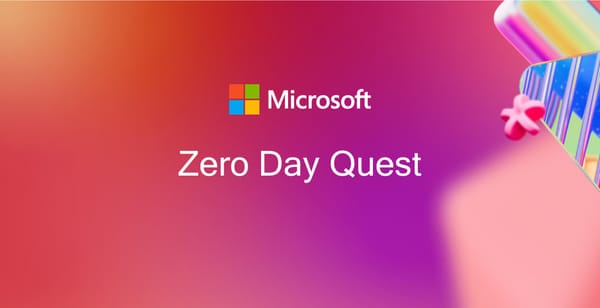
Security is a key concern for Microsoft, and at Ignite 2024, the company unveiled Zero Day Quest, a new in-person hacking event aimed at addressing vulnerabilities in cloud and AI systems. Building on Microsoft’s existing bug bounty program, Zero Day Quest focuses on high-impact security flaws, offering up to $4 million in rewards for critical discoveries.
This initiative invites security researchers to work directly with Microsoft engineers and AI experts to explore weaknesses in the company’s cloud infrastructure and AI tools. With growing concerns over AI security and the need for robust cloud protections, this event underscores Microsoft’s commitment to improving the safety of its platforms.
As part of its broader security focus, Microsoft also announced updates to Microsoft Security Exposure Management and the Windows Resiliency Initiative. These tools are designed to identify potential attack vectors and provide better recovery solutions for organizations impacted by security incidents like the CrowdStrike debacle earlier this year. The initiative aims to improve Windows security by making recovery easier and enhancing controls over what apps and drivers are allowed to run.
5. Windows 365 Link: A Cloud PC for the Hybrid Workforce
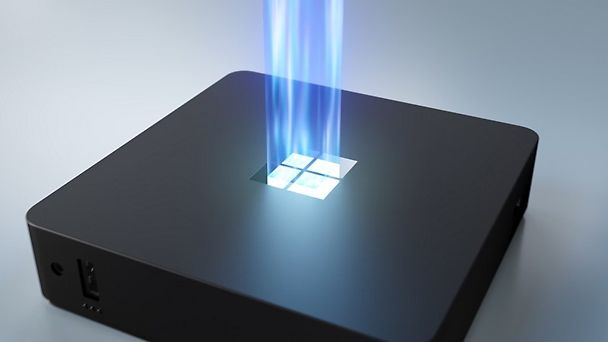
Microsoft is also targeting businesses that rely on virtual machines with its new Windows 365 Link device. This $349 mini PC is designed to be a secure, compact, and efficient way for users to access their Windows 365 cloud PCs. Unlike traditional PCs, the Windows 365 Link acts as a thin client, streaming the user’s entire desktop from the cloud. This eliminates the need for heavy, resource-draining hardware while providing a seamless and secure connection to Windows 11 hosted in Microsoft’s cloud.
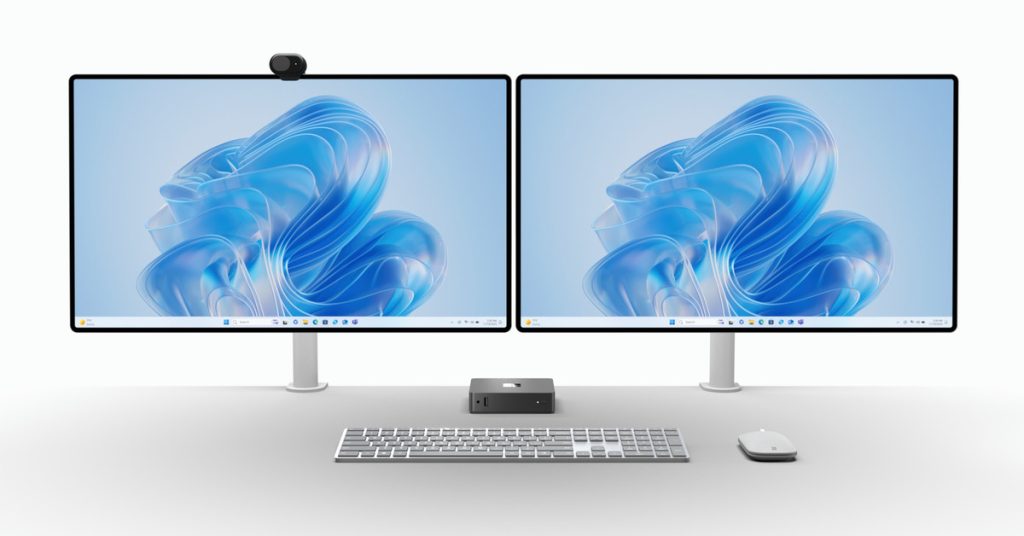
Windows 365 Link is designed for quick setup and ease of use, with a lightweight OS that facilitates a fast connection to the cloud. It’s a great option for businesses adopting the hybrid work model, where employees can easily switch between devices while ensuring all data and applications remain secure in the cloud. The device is expected to be available in April 2025.
6. Copilot Actions and AI-Powered Office Enhancements
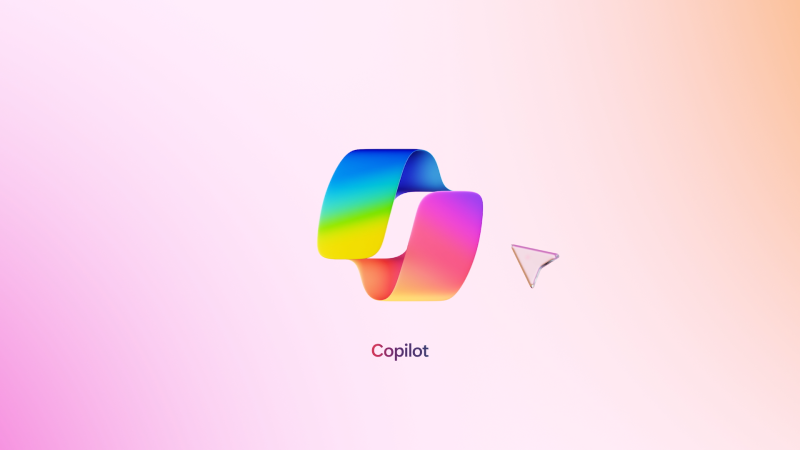
Another highlight of Microsoft Ignite 2024 was the introduction of Copilot Actions, a new feature in Microsoft 365 that allows users to automate repetitive tasks. Whether it’s summarizing meeting actions, generating reports, or automating meeting prep, Copilot Actions offers a streamlined experience where users can set actions once and let AI handle them in the background.
Additionally, Copilot is being integrated into several Office apps to further enhance productivity. PowerPoint users will soon be able to translate entire presentations into one of 40 languages, while Excel will offer AI-powered suggestions to help users create better spreadsheets. Outlook is also getting smarter, with new capabilities to find the best time for meetings and even generate meeting agendas.
Microsoft is extending Copilot’s reach to SharePoint, where AI-powered agents will allow users to summarize documents, query data across sites, and build custom AI-driven workflows. These improvements are expected to provide significant time savings and enhance collaboration within organizations, especially in remote and hybrid work settings.
7. Microsoft Teams: Real-Time Translation and Meeting Summaries

Finally, Microsoft Teams is receiving a host of new AI features to improve communication across teams. The most notable addition is the Interpreter feature, which allows real-time speech-to-speech translation during meetings. This will enable participants to communicate in their preferred languages, with AI simulating the speaker’s voice for a more natural experience. The feature will support up to nine languages, with an expected rollout in early 2025.
Additionally, Microsoft Teams will improve meeting transcription capabilities, supporting multilingual meetings with up to 31 translation languages. Teams will also be able to provide visual content summaries and quick recaps of shared files, ensuring that participants can stay on top of meeting content without having to sift through lengthy documents or presentations.
In Conclusion
Microsoft Ignite 2024 brought a host of exciting innovations aimed at enhancing productivity, security, and collaboration across businesses. From powerful AI tools like Copilot Actions and Azure AI Foundry to hardware solutions such as the Windows 365 Link device and advancements in Windows security, the conference highlighted Microsoft’s ongoing commitment to empowering businesses in the age of AI and cloud computing. As companies continue to embrace hybrid and remote work models, Microsoft’s ecosystem of integrated tools and services will play a crucial role in shaping the future of work.

